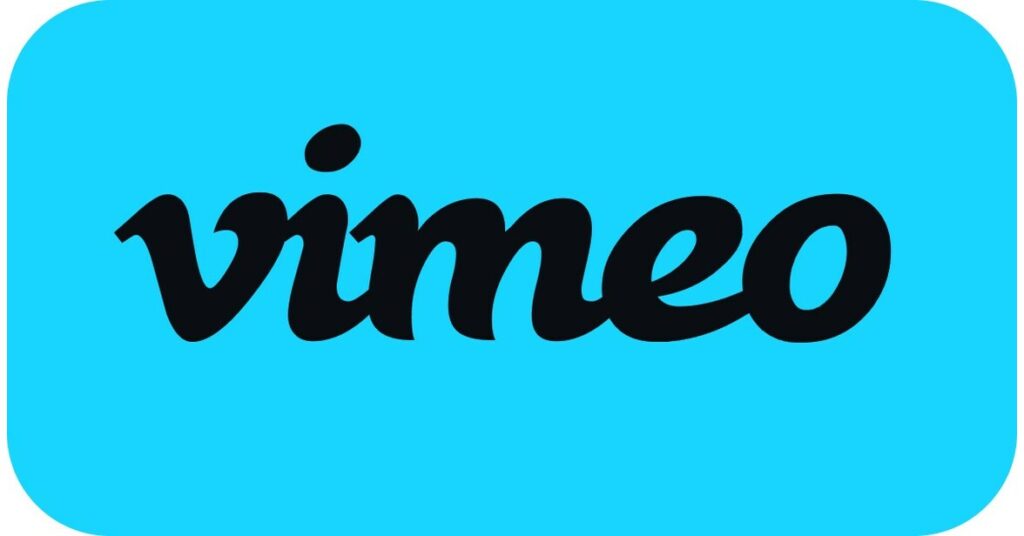1 Vimeo

Best for: Creators and professionals
Why it stands out:
Vimeo is a favorite among filmmakers and creatives thanks to its clean interface, high-quality video playback, and ad-free experience. It offers advanced privacy settings and detailed analytics, making it ideal for professionals who want to showcase their work in a polished setting.
Features:
- 4K Ultra HD support
- Monetization tools
- Customizable player
- No ads
2 Dailymotion
Best for: General video consumption
Why it stands out:
Often called “the French YouTube,” Dailymotion offers a similar layout but emphasizes curated content and trending topics. It’s less strict with copyright enforcement compared to YouTube, which may appeal to some users.
🔧 Features:
- 4K resolution support
- Flexible content policies
- Monetization through ads
- Global reach
3 Twitch
Best for: Live streaming, especially gaming
Why it stands out:
Although Twitch is primarily known for gaming content, it’s rapidly expanding into music, podcasts, and lifestyle streams. It offers strong community engagement features like real-time chat, subs, and donations.
🔧 Features:
- Live streaming with interactive chat
- Monetization through subscriptions and donations
- Niche categories like “Just Chatting” and “ASMR”
4 Rumble
Best for: Unfiltered content and free speech
Why it stands out:
Rumble has gained popularity as a platform that promotes free speech and is less likely to demonetize or de-platform creators. It appeals especially to political commentators, vloggers, and independent journalists.
🔧 Features:
- Simple monetization options
- Liberal content policies
- Growing user base
5 PeerTube
Best for: Decentralized video hosting
Why it stands out:
PeerTube is a federated, open-source video platform. Instead of relying on centralized servers, it uses peer-to-peer technology to host and distribute content. Ideal for privacy-conscious users and developers.
🔧 Features:
- Decentralized hosting
- No ads
- Customizable and self-hostable
6 DTube
Best for: Blockchain-based video content
Why it stands out:
Built on the Steem blockchain, DTube rewards users with cryptocurrency for uploading and interacting with content. It’s ad-free and censorship-resistant, giving creators more control over their videos.
Features:
- Blockchain-powered
- No ads or censorship
- Cryptocurrency rewards
7 BitChute
Best for: Controversial or banned content
Why it stands out:
BitChute uses peer-to-peer technology and promotes itself as a censorship-free alternative. It’s popular among creators whose content has been removed from mainstream platforms.
🔧 Features:
- Peer-to-peer hosting
- Minimal content moderation
- Appeals to niche communities
8 Facebook Watch
Best for: Social media video content
Why it stands out:
Integrated within Facebook, this platform targets social video consumption. It offers original series, live streams, and a personalized feed based on your interests and interactions.
🔧 Features:
- Massive built-in audience
- Real-time engagement
- Monetization through in-stream ads
9 TikTok
Best for: Short-form video content
Why it stands out:
TikTok isn’t a direct YouTube competitor, but its focus on short, viral videos has revolutionized video content consumption. It’s a great platform for quick tutorials, entertainment, and brand growth.
🔧 Features:
- Short-form, vertical videos
- AI-driven feed personalization
- Huge potential for viral growth
10 Odysee
Best for: Content freedom and crypto rewards
Why it stands out:
Odysee is built on the LBRY blockchain, allowing creators to publish and monetize content without fear of takedown or censorship. Viewers and creators can earn LBC tokens (its native cryptocurrency).
🔧 Features:
- Censorship-resistant
- Cryptocurrency incentives
- Open-source platform